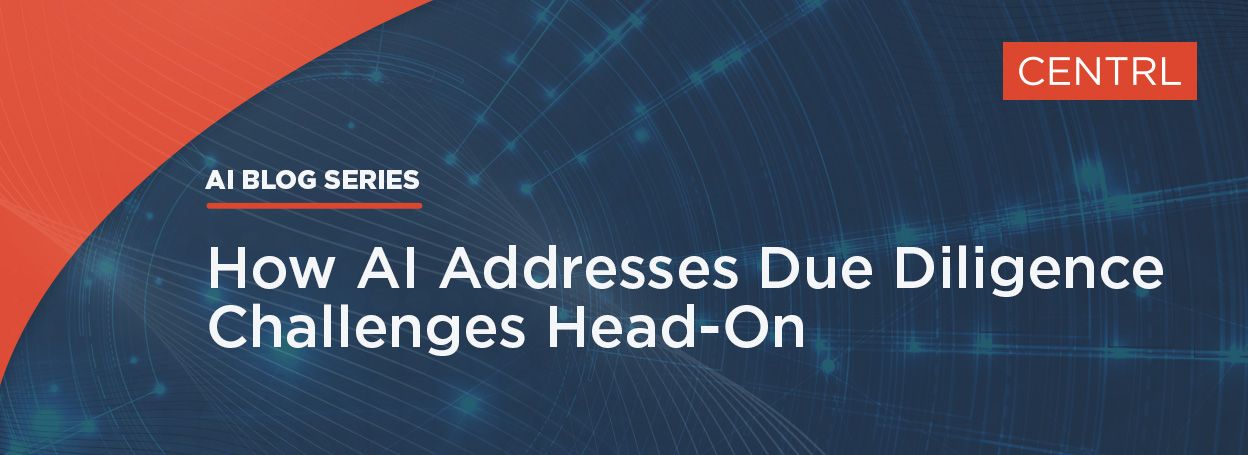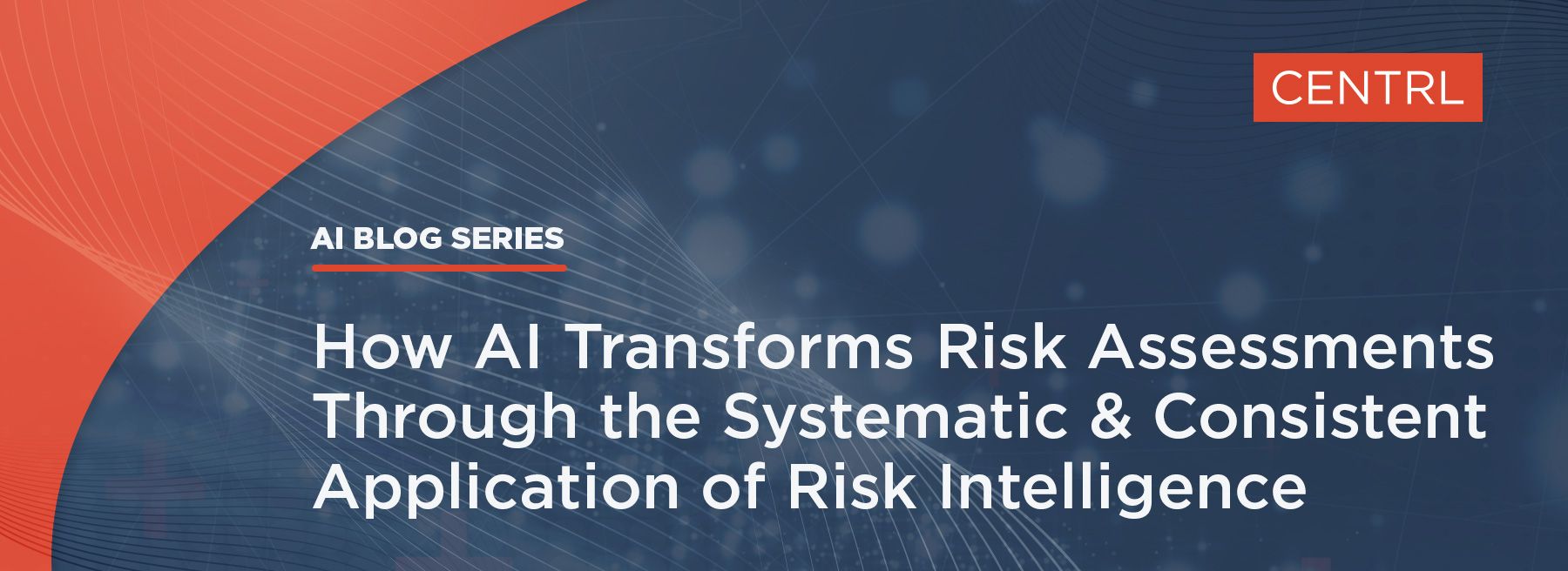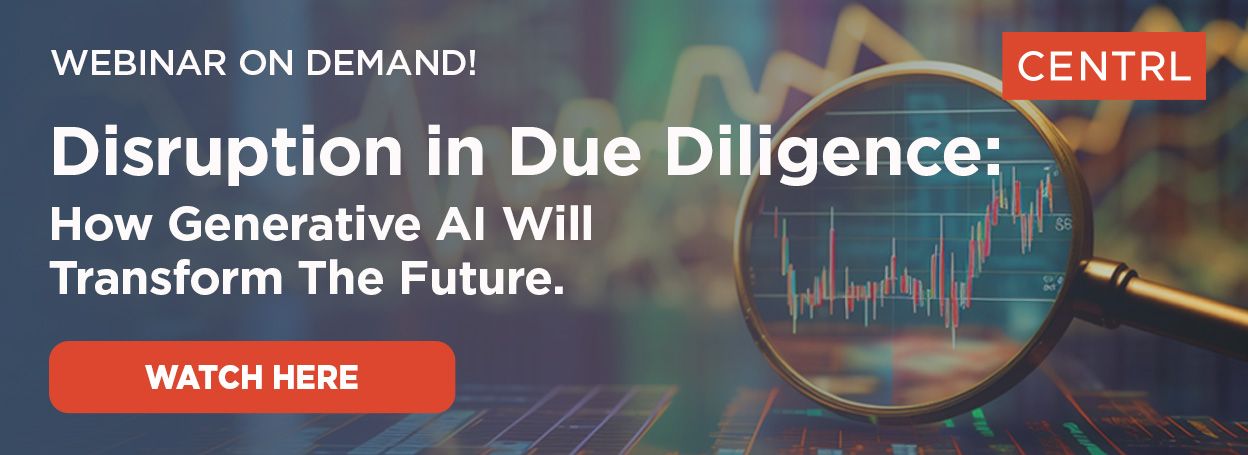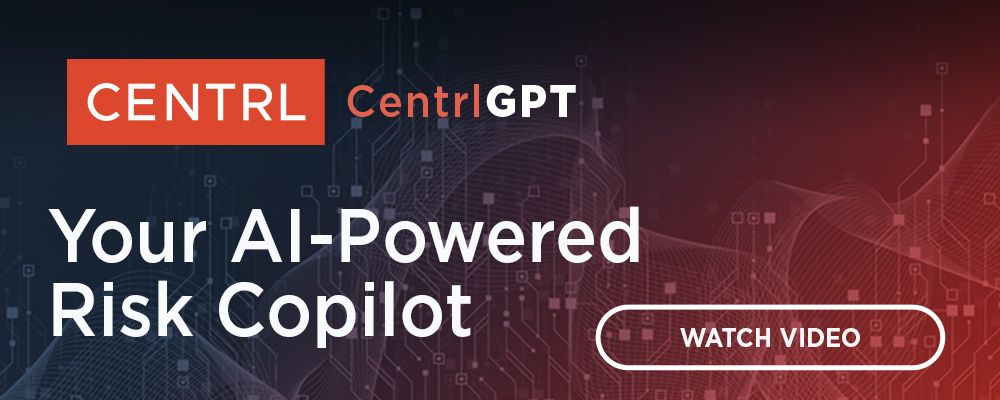How AI Addresses Due Diligence Challenges Head-On

MOUNTAIN VIEW, CA - January 3, 2024
The importance of due diligence is only matched by the complexity of its challenges. Traditional due diligence processes have limitations like time-consuming manual tasks, inconsistency in data interpretation, and difficulties in scaling operations to meet growing regulatory demands.
Given these challenges, organizations may seek new technologies and other innovative solutions to enhance their diligence processes. This is where artificial intelligence (AI) can come into play, offering a transformative solution for the future of due diligence. In a recent webinar hosted by CENTRL, industry experts explored this topic and provided valuable insights into how diligence teams can use AI to overcome traditional hurdles in their line workflow processes.
Here are 6 ways generative AI can address common challenges to due diligence processes and workflows:
1. Accelerating Tasks and Reducing Errors
One of the most significant advantages of generative AI is its ability to automate repetitive and time-consuming tasks. AI not only accelerates the process but minimizes the potential for human error. AI algorithms intelligently extract data from reports and documents, flag and measure risk based on proprietary criteria, summarize key findings, and create detailed reports within minutes. Working alongside an analyst, this workflow efficiency will be a true game-changer.
2. Prioritizing Critical Gaps and Issues With Data-Driven Insights
AI’s ability to analyze and interpret large datasets enables it to prioritize questionnaire responses that need extra scrutiny. Generative AI learns and adapts to different types of queries, flagging responses based on your predetermined risk criteria set. This flexibility ensures organizations receive comprehensive insights, regardless of the variability in responses across different entities.
3. Reducing Managerial Burdens With Streamlined Responses
Generative AI can learn from previous answers to due diligence questions to reduce the burden on managers and analysts by searching across data sets and composing detailed responses. This approach goes beyond simple answer libraries, which require extensive manual upkeep, making the process far more efficient.
For analysts reviewing assessments, generative AI can comb through response documents attached to a questionnaire to generate a suggested answer. When managers send detailed documents along with their responses, this approach helps provide detailed context to back answers and highlight possible discrepancies. For example, if a partner answers “Yes” to a question about maintaining a privacy program, generative answering can summarize their privacy program to evaluators from attachments.
4. Adapting to Regulatory Changes
New regulatory requirements mean continuous changes to how third parties are vetted and monitored. Adaptability to meet the ever-changing regulatory landscape can reduce the burden of adhering to new requirements while keeping organizations compliant. Analysts can leverage generative AI to adjust questionnaires, adhere to regulatory methodologies in real-time, and reduce the need for manual intervention.
5. Enhancing the rigor and scope of risk assessment
Generative AI solutions can dramatically enhance the rigor of the risk assessment by consistently and uniformly applying risk criteria across all entities as well by seamlessly incorporating external source materials to develop a more comprehensive view of risk than is currently possible. For example, a robust GenAI tool can parse external public information such as SEC filings while calibrating the risk of an external entity. As importantly it can do this in minutes and at scale that would be impossible to do with traditional tools and platforms. .
6. Empowering Businesses to Scale
AI enables firms to scale their processes more efficiently. As the volume of data and complexity of operations increase, AI can take on the additional workload without a proportional increase in resources. This scalability is essential for firms looking to grow their operations without compromising the quality and thoroughness of their due diligence processes.
Stay tuned for our next blog, 3 Steps to Implementing AI in Your Due Diligence Process.
Interested in learning more? Getting started with CentrlGPT is simple. Schedule a demo, or learn more about what AI can do for your teams.


